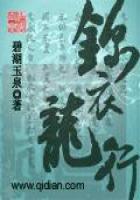"But, however exclusive the right arising from sole occupancy, does it not become still more so, when man has moulded matter by his labor; when he has deposited in it a portion of himself, re-creating it by his industry, and setting upon it the seal of his intelligence and activity? Of all conquests, that is the most legitimate, for it is the price of labor.
He who should deprive a man of the thing thus remodelled, thus humanized, would invade the man himself, and would inflict the deepest wounds upon his liberty."I pass over the very beautiful explanations in which M.Troplong, discussing labor and industry, displays the whole wealth of his eloquence.M.Troplong is not only a philosopher, he is an orator, an artist.HE ABOUNDS WITH APPEALS TO THE CONSCIENCEAND THE PASSIONS.I might make sad work of his rhetoric, should I undertake to dissect it; but I confine myself for the present to his philosophy.
If M.Troplong had only known how to think and reflect, before abandoning the original fact of occupancy and plunging into the theory of labor, he would have asked himself: "What is it to occupy?" And he would have discovered that OCCUPANCY is only a generic term by which all modes of possession are expressed,--seizure, station, immanence, habitation, cultivation, use, consumption, &c.; that labor, consequently, is but one of a thousand forms of occupancy.He would have understood, finally, that the right of possession which is born of labor is governed by the same general laws as that which results from the simple seizure of things.What kind of a legist is he who declaims when he ought to reason, who continually mistakes his metaphors for legal axioms, and who does not so much as know how to obtain a universal by induction, and form a category?
If labor is identical with occupancy, the only benefit which it secures to the laborer is the right of individual possession of the object of his labor; if it differs from occupancy, it gives birth to a right equal only to itself,--that is, a right which begins, continues, and ends, with the labor of the occupant.It is for this reason, in the words of the law, that one cannot acquire a just title to a thing by labor alone.He must also hold it for a year and a day, in order to be regarded as its possessor; and possess it twenty or thirty years, in order to become its proprietor.
These preliminaries established, M.Troplong's whole structure falls of its own weight, and the inferences, which he attempts to draw, vanish.
"Property once acquired by occupation and labor, it naturally preserves itself, not only by the same means, but also by the refusal of the holder to abdicate; for from the very fact that it has risen to the height of a right, it is its nature to perpetuate itself and to last for an indefinite period....
Rights, considered from an ideal point of view, are imperishable and eternal; and time, which affects only the contingent, can no more disturb them than it can injure God himself." It is astonishing that our author, in speaking of the IDEAL, TIME, and ETERNITY, did not work into his sentence the DIVINE WINGSof Plato,--so fashionable to-day in philosophical works.
With the exception of falsehood, I hate nonsense more than any thing else in the world.PROPERTY ONCE ACQUIRED! Good, if it is acquired; but, as it is not acquired, it cannot be preserved.
RIGHTS ARE ETERNAL! Yes, in the sight of God, like the archetypal ideas of the Platonists.But, on the earth, rights exist only in the presence of a subject, an object, and a condition.Take away one of these three things, and rights no longer exist.Thus, individual possession ceases at the death of the subject, upon the destruction of the object, or in case of exchange or abandonment.
Let us admit, however, with M.Troplong, that property is an absolute and eternal right, which cannot be destroyed save by the deed and at the will of the proprietor.What are the consequences which immediately follow from this position?
To show the justice and utility of prescription, M.Troplong supposes the case of a bona fide possessor whom a proprietor, long since forgotten or even unknown, is attempting to eject from his possession."At the start, the error of the possessor was excusable but not irreparable.Pursuing its course and growing old by degrees, it has so completely clothed itself in the colors of truth, it has spoken so loudly the language of right, it has involved so many confiding interests, that it fairly may be asked whether it would not cause greater confusion to go back to the reality than to sanction the fictions which it (an error, without doubt) has sown on its way? Well, yes; it must be confessed, without hesitation, that the remedy would prove worse than the disease, and that its application would lead to the most outrageous injustice."How long since utility became a principle of law? When the Athenians, by the advice of Aristides, rejected a proposition eminently advantageous to their republic, but also utterly unjust, they showed finer moral perception and greater clearness of intellect than M.Troplong.Property is an eternal right, independent of time, indestructible except by the act and at the will of the proprietor; and here this right is taken from the proprietor, and on what ground? Good God! on the ground of ABSENCE! Is it not true that legists are governed by caprice in giving and taking away rights? When it pleases these gentlemen, idleness, unworthiness, or absence can invalidate a right which, under quite similar circumstances, labor, residence, and virtue are inadequate to obtain.Do not be astonished that legists reject the absolute.Their good pleasure is law, and their disordered imaginations are the real cause of the EVOLUTIONS in jurisprudence.















